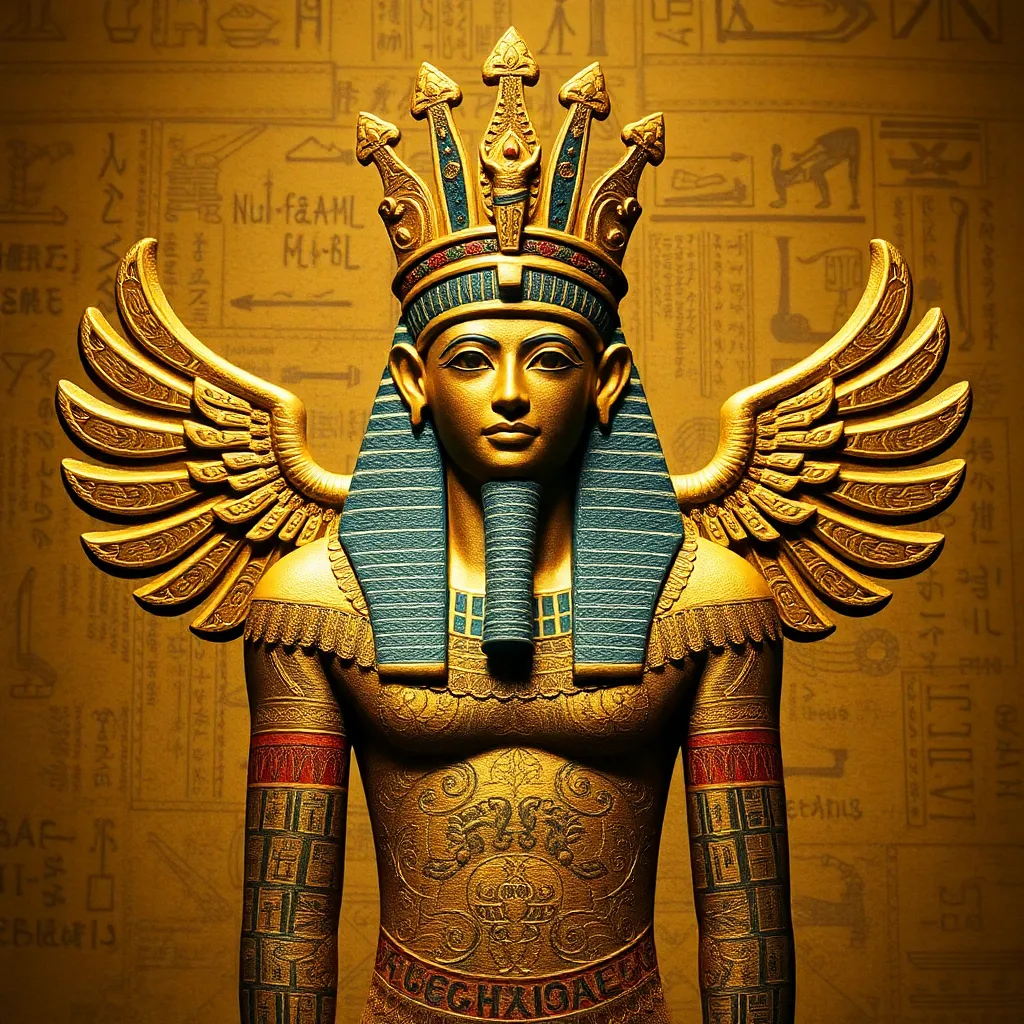Atenism and Its Influence on Egyptian Medicine
I. Introduction
Atenism, a monotheistic faith that emerged in ancient Egypt under the reign of Pharaoh Akhenaten, centered around the worship of the sun disk, known as the Aten. This religious movement represented a significant departure from the traditional polytheistic beliefs that had dominated Egyptian spirituality for centuries. Ancient Egyptian medicine, characterized by its complex interplay of religion, magic, and practical remedies, was profoundly influenced by the ideologies presented by Atenism.
The purpose of this article is to explore the relationship between Atenism and medical practices in ancient Egypt, examining how the beliefs associated with the Aten shaped the medical landscape of the time.
II. Historical Context of Atenism
Atenism emerged during a transformative period in ancient Egyptian history, particularly during the 14th century BCE, when Pharaoh Akhenaten ascended to the throne. Akhenaten introduced Atenism as a way to consolidate power and redefine religious practices.
Key beliefs of Atenism included:
- The exclusive worship of the Aten as the sole deity.
- A rejection of the traditional pantheon of gods.
- An emphasis on the natural world and the sun’s life-giving properties.
The socio-political climate during Akhenaten’s reign was marked by upheaval as he sought to dismantle the entrenched power of the priesthood associated with the traditional gods. This shift had far-reaching implications, not only for religion but also for medicine, as the healthcare practices of the time began to reflect the new theological outlook.
III. The Role of Religion in Ancient Egyptian Medicine
In ancient Egypt, medicine was inextricably linked to religion. Traditional medical practices often involved invoking the names of deities and utilizing magical spells alongside herbal remedies. The following points illustrate the influence of religion on health and healing:
- Many illnesses were thought to be caused by displeasure from the gods or the presence of malevolent spirits.
- Deities such as Imhotep, the god of medicine, and Sekhmet, the goddess of healing, played crucial roles in treatment practices.
- Rituals and offerings were common components of medical treatment, often performed by priests who acted as both healers and spiritual intermediaries.
The intersection of medicine and religion in ancient Egypt formed a holistic approach to health, where the spiritual and physical realms were deeply intertwined.
IV. Atenism’s Unique Perspective on Health and Well-being
Atenism introduced a unique perspective on health and well-being, emphasizing the Aten as a source of life and health. This belief system fostered a more direct relationship between the natural world and human well-being.
Changes in medical practices and beliefs under Atenism included:
- A focus on the sun’s rays as a vital source of healing energy.
- Increased emphasis on the health of the individual in relation to the wider environment, aligning with the natural cycles of life.
- A holistic approach to health, integrating physical, emotional, and spiritual well-being.
This perspective encouraged a view of health that was not limited to merely treating symptoms but sought to understand the larger context of a person’s life and environment.
V. Medical Texts and Knowledge Transfer
The Atenist period saw the production of various medical texts that reflected the changing beliefs and practices in medicine. Examination of medical papyri from this time reveals significant insights into the healthcare practices influenced by Atenism.
Contributions of Atenism to medical knowledge and practices included:
- Documentation of herbal remedies that were believed to be blessed by the Aten.
- Descriptions of treatments that incorporated sunlight and natural elements as healing forces.
- A compilation of spells and rituals designed to invoke the Aten’s favor in healing.
The impact on subsequent generations of Egyptian medicine was profound, as many of these texts served as foundational knowledge for later medical practitioners, intertwining Atenist beliefs with traditional practices.
VI. Case Studies: Notable Medical Practices Influenced by Atenism
Several notable medical practices during the Atenist period illustrate the influence of Atenism on healing approaches:
- Treatment of skin diseases: Sunlight was utilized as a primary treatment method, with patients often advised to expose affected areas to the sun.
- Healing of respiratory ailments: Remedies included inhalation of herbal fumes believed to be invigorated by the Aten’s energy.
- Emotional and mental health treatments: Holistic approaches included meditation and relaxation techniques that aligned with the worship of the Aten.
When compared with pre-Atenist medical practices, it is evident that Atenism introduced new dimensions to health and healing, emphasizing a more integrated approach.
VII. Atenism’s Decline and Its Legacy in Egyptian Medicine
Despite its innovations, Atenism faced decline after the death of Akhenaten, leading to a return to traditional polytheistic worship. This transition resulted in the marginalization of Atenist beliefs and practices.
However, the preservation and transformation of medical knowledge post-Atenism played a crucial role in the evolution of Egyptian medicine:
- Many medical texts from the Atenist period were preserved and adapted by subsequent dynasties.
- Elements of holistic healing influenced later practices, as seen in the emphasis on mental and emotional health.
- The integration of sunlight and natural remedies continued to persist in Egyptian medical practices long after Atenism faded.
The long-term influences of Atenism on Egyptian medicine are evident in the continuity of certain medical philosophies and practices that survived through the ages.
VIII. Conclusion
In summary, Atenism’s unique theological framework significantly influenced the medical practices of ancient Egypt. From its origins during Akhenaten’s reign to its legacy in subsequent generations, Atenism reshaped the understanding of health and healing.
Reflecting on the significance of Atenism in the evolution of Egyptian medicine reveals a fascinating interplay between spirituality and healthcare that continues to intrigue scholars today.
Further research on this topic could explore the specific medical texts produced during the Atenist period, the role of specific practitioners, and the lasting impact of Atenist beliefs on later Egyptian medical systems.




